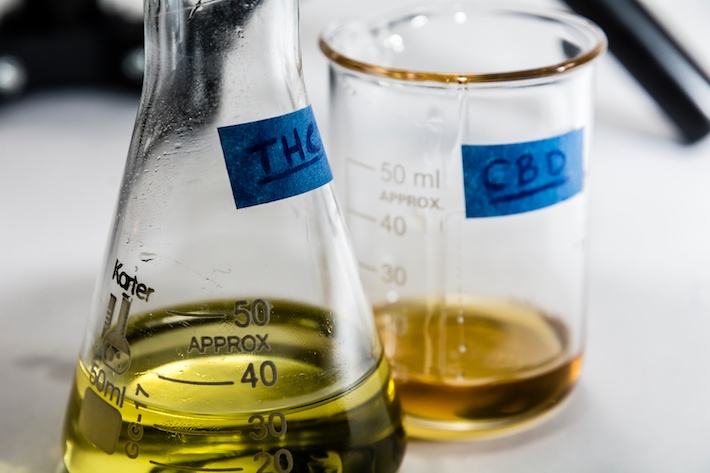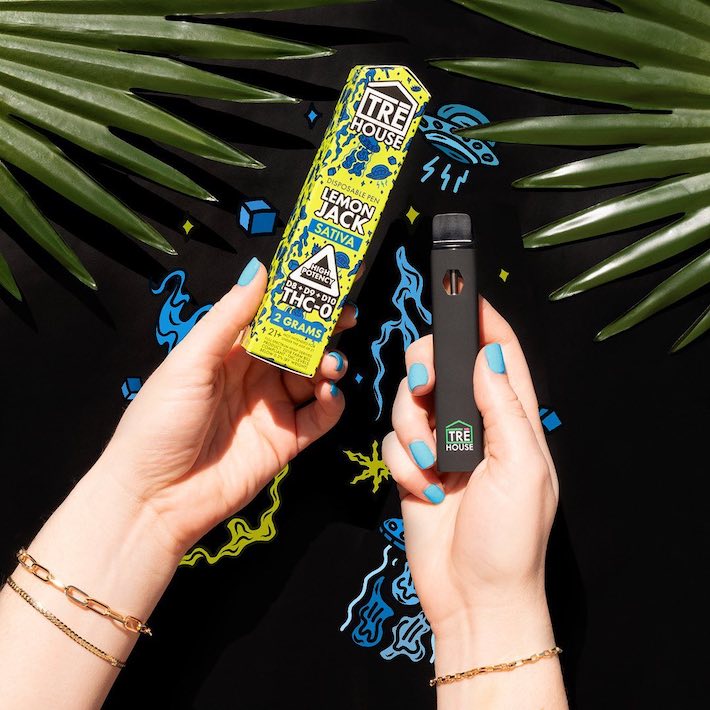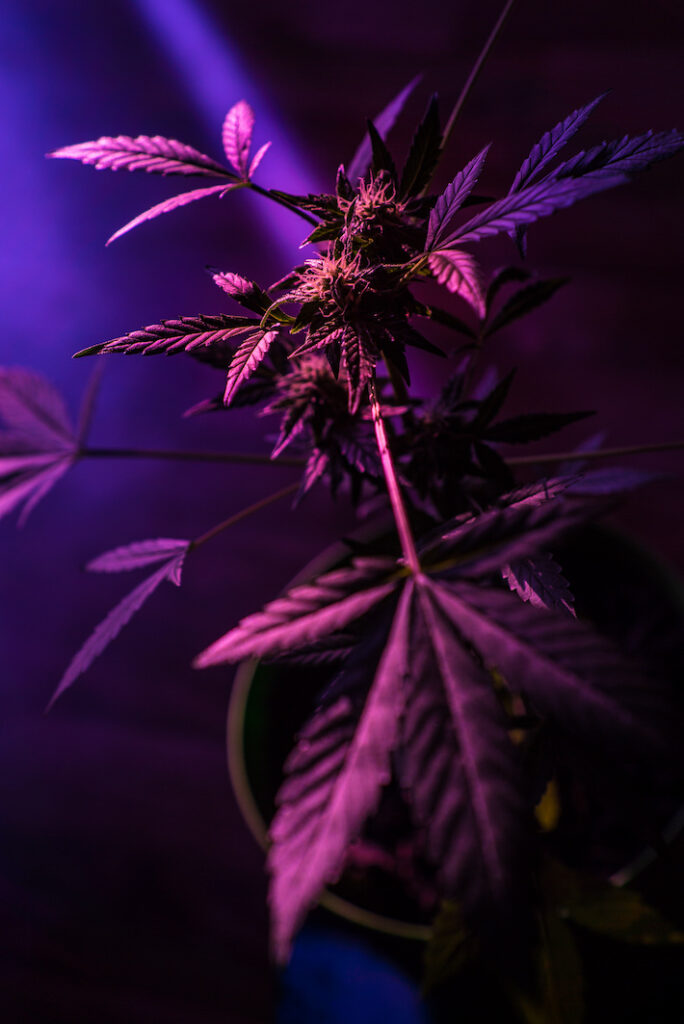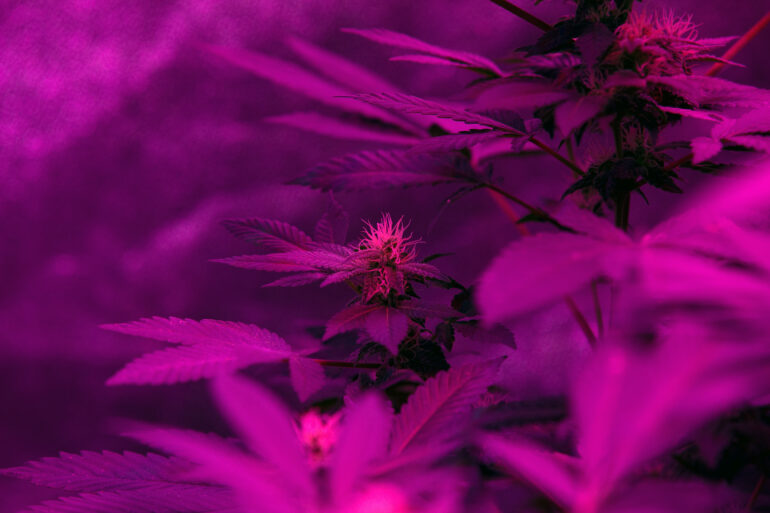THC acetate ester (THC-O) and tetrahydrocannabiphorol (THCP) are two of the newest cannabinoids available. Their effects imitate THC by working on cannabinoid receptors but may bind stronger, last longer, and be multiple times more psychoactive.
The most serious concern is a recent link between vaping THC-O and a serious lung disease called EVALI. If otherwise ingested, consumers must be extremely cautious dosing THC-O and THCP to minimize adverse effects similar to excess THC.
The risks may outweigh the possible benefits. The CDC and USP caution about the unknown health effects of such new cannabinoid products. Recently, the DEA called for an end to THC-O sales.
What Are the Main Differences Between THC-O and THCP?
THC-O and THCP are separate variants of THC made by harshly acid-treating CBD. THCP can be isolated in minute quantities in cannabis plants, but the mass production scale requires synthetic shortcuts. On the contrary, neither delta-8 nor delta-9 THC-O are naturally made by cannabis plants.
There is very little known about THCP or THC-O, and there are no human studies to guide us. Only one source is attributed with estimating that THC-O has three times the potency of delta-9 THC, but lacks peer-reviewed data to back this up.
Compared to THC, THCP is estimated to have 33 times stronger CB1 binding capacity, and 5 to 10 times stronger CB2 binding. However, these rough estimates do not directly equate to proportionate THC strength. The same study mentions that only half the dose of THCP was required to match THC effects in mice.
If such products come from hemp and have <0.3% THC, then these products are theoretically federally legal. Still, the fact that THCO is not naturally occurring caused the DEA to say its sales should come to an end. Vaping THC-O and unregulated cartridges could be associated with EVALI.
Characteristics
- THC-O is a semi-synthetic cannabinoid made from CBD but is not found in nature
- THC-O has an acetate group making it dangerous to vape
- THCP is naturally occurring in quantities about 1300 times less concentrated than THC
- Anecdotally, they are both reported to be several times more psychoactive than THC
- No clinical data exist for either THC-O or THCP; their health effects and safety remain unknown
Sourcing
- THC-O and THCP products are synthesized from hemp-based CBD using harsh, acidic reagents
- These processes can also generate and introduce other known or unknown cannabinoids, byproducts, and residues that may still be present in the final product if not properly made and tested
- THC-O and THC may frequently appear as contaminants of delta-8 THC products
Legality
- THC-O and THCP were incidentally made federally legal in 2018 if derived from hemp
- The heyday of legal THC-O products may be over thanks to a 2023 DEA decision
Drug Testing
- Routine drug testing protocols are typically not able to distinguish between THC-O, THCP, and THC metabolites and thus register a positive result
Potential Benefits and Side Effects of THC-O
THC-O Benefits
THC-O, also called THC-O-acetate (ATHC), is a semi-synthetic, non-naturally occurring cannabinoid that has never been studied in humans. We can estimate based on its anecdotally higher psychoactivity and structure that it likely acts on CB1 and CB2 as other semi-synthetic THC isomers do. Still, we don’t know if THC-O has other molecular targets.
THC isomers in general are also known to cause THC-like effects. So it is theoretically possible to use THC-O for similar potential benefits like:
- Pain
- Nausea and vomiting
- Muscle spasticity
- Appetite stimulation
However, this approach is not recommended because it is highly experimental, full of unknowns, and not confirmed to be safe.
THC-O Adverse Effects
EVALI caught national attention when semisynthetic delta-8 cartridges containing Vitamin E acetate caused an epidemic in 2019. Researchers are now warning that another EVALI epidemic may stem from unregulated THC-O vapes. This is because the acetate component is transformed into a toxic inhalant called ketene upon vaporization.
The symptoms of EVALI include:
- Shortness of breath
- Cough
- Chest pain
- Diarrhea
- Abdominal pain
- Fever
- Fatigue
If THC-O is consumed in another way such as edibles, one may reasonably expect THC-like adverse effects. These may include:
- Euphoria or dysphoria
- Anxiety and paranoia
- Dry mouth
- Red eyes
- Dizziness
However, it is easy to overeat potent substances like THC-O and there is no human research to tell us the full list of short and long-term side effects.
Potential Benefits and Side Effects of THCP
THCP Benefits
THCP made its debut in a 2019 research paper where its structure and effects on mice were first documented. THCP demonstrates cannabimimetic, or THC-like, activity in four measurable tests. Mice displayed less movement, increased pain tolerance, muscle rigidity, and lower body temperature.
These results are reflective of cannabinoid activity. Therefore, THCP if handled and dosed properly, may one day be beneficial in the potential uses of full CB1 and CB2 agonists including but not limited to:
- Epilepsy
- Chronic and neuropathic pain
- Appetite stimulation
- Spasticity
- Nausea
- Vomiting
- Inflammation
THCP Adverse Effects
THCP is currently the most potent, naturally occurring cannabinoid identified by science. The authors note how it behaves more like a full CB1 and CB2 agonist, which is different from THC’s partial agonism.
Counterintuitively, the partial agonism of THC is better and safer than the full CB1 agonism of synthetic cannabinoids and recreational synthetic THC imitations (e.g. Spice, K2, black mamba).
The body can more easily turn off a partial trigger like THC, but full agonists like THCP could be toxic and cause serious health problems like:
- Psychosis
- Agitation
- Confusion
- Hallucinations
- Rapid heart rate
- Autonomic dysregulation
- Vomiting
Will THC-O or THCP Show Up on a Drug Test?

Likely yes or at least possible, but there is no hard data yet. Using THC-O or THCP products likely creates metabolites similar enough to delta-9-THC-COOH. Just like how delta-8 follows the same metabolic pathways as delta-9.
Enough of these metabolites may show up on a drug screen for cannabinoids with regular use. This is especially true if dealing with a THC-contaminated product, which is likely. Most drug tests aren’t usually equipped to tell the difference between their metabolites.
RELATED: What Is the Best Defense for a Positive Drug Test?
Whole blood drug testing is different in that it also looks for active cannabinoid levels. In a 2022 study, the cross-reactivities for THC-O and THCP were 3% for THC-O and 0.9% when looking for THC. This means a whole blood test is probably better at distinguishing THC-O and THCP use than a metabolite screen.
RELATED: Most Potent THCP Vape Cartridges
Are THC-O and THCP Legal?

Currently, THC-O and TCHP products are legal if made from hemp because of the 2018 Farm Bill. However, the products must also contain <0.3% delta-9 THC by dry weight so finding a quality source is critical but difficult in an unregulated landscape.
RELATED: Strongest THC-O Edibles
However, the window of THC-O products may be closing soon. In February 2023, the DEA stated THC-O is not a naturally-made hemp substance, and is therefore a Schedule 1 Controlled Substance. This could make it illegal for possession or sale of THC-O, but it is unclear how hard the DEA is going to enforce this rule on manufacturers, retailers, and consumers.
Conclusion: THC-O vs. THCP

Without regulations or research to guide manufacturers and protect consumers, the new semisynthetic cannabinoid market is fraught with potential dangers. Consumers should avoid bad industry actors, look for quality controls, and not vape semi-synthetic oils.
There are still many unknowns in terms of health effects or even what exactly is in the product you are buying. Not to mention that THC-O and THCP are highly intoxicating, can easily be overconsumed, or may be consumed dangerously through vaping.
Consumers who still want to try these products need to understand that they are proceeding at their own risk without any known clinical research nor are there existing medical indications for these.
References (13)
- Benowitz, N. L., Havel, C., Jacob, P., O’Shea, D. F., Wu, D., & Fowles, J. (2023). Vaping THC-O Acetate: Potential for Another EVALI Epidemic. Journal of medical toxicology: official journal of the American College of Medical Toxicology, 19(1), 37–39. doi.org/10.1007/s13181-022-00921-3
- THCO is a Schedule 1 Controlled Substance Says DEA. Kight on Cannabis. (2023). Retrieved June 5, 2023, from https://cannabusiness.law/thco-is-a-schedule-1-controlled-substance-says-dea/
- Guo, W., Vrdoljak, G., Liao, V.-C., & Moezzi, B. (2021). Major Constituents of Cannabis Vape Oil Liquid, Vapor and Aerosol in California Vape Oil Cartridge Samples. Frontiers in Chemistry, 9. doi.org/10.3389/fchem.2021.694905
- Moody, M. T., Ringel, M. M., Mathews, C. M., & Midthun, K. M. (2022). Determination of Cross-Reactivity of Contemporary Cannabinoids with THC Direct Immunoassay (ELISA) in Whole Blood. Journal of Analytical Toxicology, 46(8), 844–851. doi.org/10.1093/jat/bkac051
- Increases in Availability of Cannabis Products Containing Delta-8 THC and Reported Cases of Adverse Events. (2021, September 14). CDC Health Alert Network. Retrieved June 1, 2023 from: https://emergency.cdc.gov/han/2021/pdf/CDC_HAN__451.pdf
- Sarma, N. D., Waye, A., ElSohly, M. A., Brown, P. N., Elzinga, S., Johnson, H. E., Marles, R. J., Melanson, J. E., Russo, E., Deyton, L., Hudalla, C., Vrdoljak, G. A., Wurzer, J. H., Khan, I. A., Kim, N.-C., & Giancaspro, G. I. (2020). Cannabis Inflorescence for Medical Purposes: USP Considerations for Quality Attributes. Journal of Natural Products, 83(4), 1334–1351. doi.org/10.1021/acs.jnatprod.9b01200
- Starks, M. (2009). Marijuana Chemistry: Genetics, Processing, Potency. United States: Ronin Publishing.
- Holt, A. K., Poklis, J. L., & Peace, M. R. (2022). ∆8-THC, THC-O Acetates and CBD-di-O Acetate: Emerging Synthetic Cannabinoids Found in Commercially Sold Plant Material and Gummy Edibles. Journal of Analytical Toxicology, 46(8), 940–948. doi.org/10.1093/jat/bkac036
- Reber, J. D., Karschner, E. L., Seither, J. Z., Knittel, J. L., Dozier, K. V., & Walterscheid, J. P. (2022). An Enhanced LC–MS-MS Technique for Distinguishing Δ8- and Δ9-Tetrahydrocannabinol Isomers in Blood and Urine Specimens. Journal of Analytical Toxicology, 46(4), 343–349. doi.org/10.1093/jat/bkac007
- Geci, M., Scialdone, M., & Tishler, J. (2023). The Dark Side of Cannabidiol: The Unanticipated Social and Clinical Implications of Synthetic Δ8-THC. Cannabis and Cannabinoid Research, 8(2), 270–282. doi.org/10.1089/can.2022.0126
- Health, C. O. on S. and. (2021, August 3). Smoking and Tobacco Use; Electronic Cigarettes. Centers for Disease Control and Prevention. https://www.cdc.gov/tobacco/basic_information/e-cigarettes/severe-lung-disease.html
- Tagen, M., & Klumpers, L. E. (2022). Review of delta-8-tetrahydrocannabinol (Δ8-THC): Comparative pharmacology with Δ9-THC. British Journal of Pharmacology, 179(15), 3915–3933. doi.org/10.1111/bph.15865
- Ebbert, J. O., Scharf, E. L., & Hurt, R. T. (2018). Medical Cannabis. Mayo Clinic Proceedings, 93(12), 1842–1847. doi.org/10.1016/j.mayocp.2018.09.005
